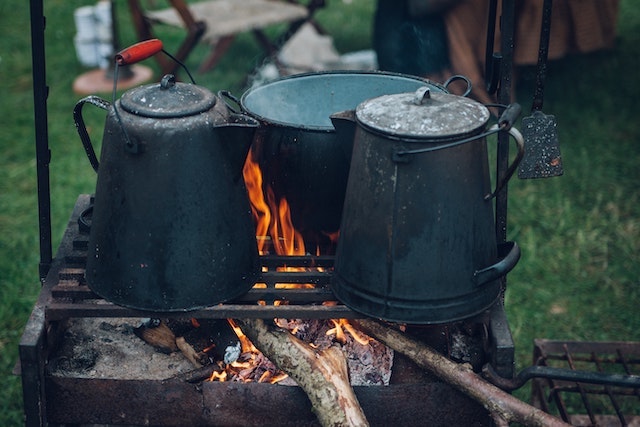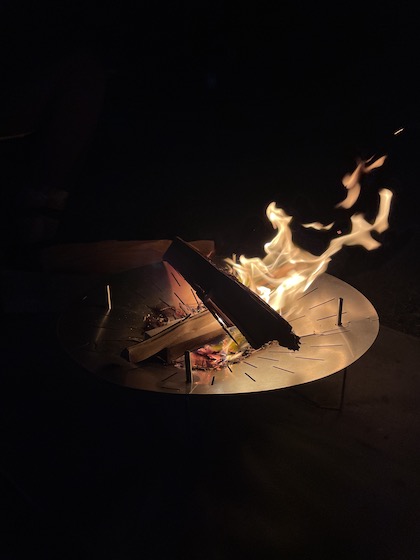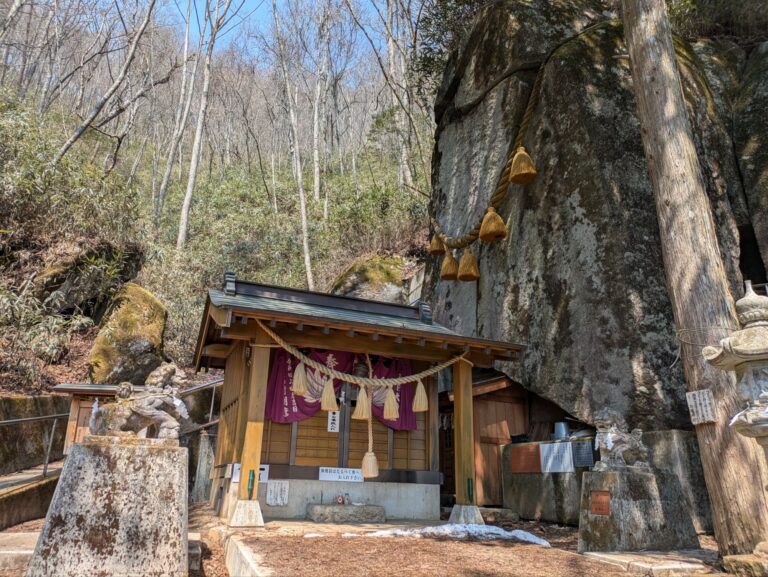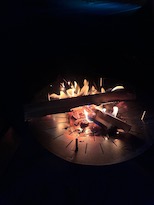Hello everyone! I am sure that many of you who love the outdoors have hiked at least once. But many of them have probably never tried night hike before. In this issue, we would like to introduce some precautions, dangers, and recommended gear for night hikes!

- About Night Hikes
- How to enjoy night hiking
- Cautions/Dangers of Night Hikes
- Recommended Gear for Night Hikes
- summary
About Night Hikes
First of all, have you ever hiked? Japan is one of the countries in the world with many forests and mountains. Even from central Tokyo, hiking trails in the vicinity can be accessed within an hour by train or car. The transportation network is also well developed, so famous mountains can be accessed quite easily.
This means that Japanese people can enjoy hiking easily!
Night hiking, as the name implies, is an activity that involves hiking at night. Or it is also a standard practice to hike during the night to see the sunrise, with the goal of reaching the summit at sunrise in the early morning.
However, unlike daytime hiking, night hiking requires a certain amount of equipment and prior knowledge because of the danger of encountering wild animals or going off course, and the high possibility that other climbers will not be around.
In this article, we will introduce how to enjoy such night hikes and the necessary knowledge for beginners.
How to enjoy night hiking
The author recommends several different ways to enjoy a night hike!
Night hike to see the sunrise from the top of the mountain.
In Japan, many people feel that sunrises are very special, don’t they? Many people have seen sunrise and sunset from the ocean, but have you ever seen them from the top of a mountain?
I personally think that by seeing the sunrise and sunset from the top of a mountain, you can experience the roundness of the earth and feel that you are living on the earth! Another good point of the night hike to see the sunrise is that although it is pitch-dark on the way up, the sun will be up on the way back, so you can go home without worrying!
Tip!On New Year’s Day, on the other hand, many people hike to see the first sunrise of the year, so it is recommended for first-timers not to get lost!
(2) Night hike to enjoy a perfect night
In a city, there are inevitably streetlights and house lights. However, a mountain at night is a place where one can experience the night in its entirety. The five human senses are usually so accustomed to the night that they do not function to their full potential.
Take sight, for example. During a night hike, unless you have a light on, you will be hiking only by moonlight, but surprisingly, once you get used to it, your eyesight is sufficient to see your surroundings even by moonlight alone.
Next is hearing. Human hearing is more sensitive when visibility is poor. The chance of encountering wild animals in the mountains at night is higher than during the daytime. In such a case, it is easy to tell if there are wild animals nearby by relying on your sense of hearing, so you should listen carefully.
(3) Night hiking and overnight stay in a tent
Start hiking in the evening at night and set up your tent in the middle of the mountain. Then enjoy a night hike to the summit and spend the night in a tent. This is possible if you have a large backpack!
Night hikes are different from regular hikes, but first-time hikers should always go with an experienced hiker rather than alone!
Cautions/Dangers of Night Hikes

Now that we have discussed what a night hike is and how to enjoy it, the most important thing is to understand the dangers and possible risks of night hikes in advance.
First of all, understand that this is a nature activity and that you must take responsibility for your own actions. Walking on a trail at night is different from walking on a trail in the daytime. Naturally, it is necessary to assume the risk of getting lost, falling, frostbite due to lack of protection against the cold, and other things that cannot happen in the daytime.
In the unlikely event of injury, keep in mind whether you will have cell phone reception, and the time and difficulty it will take to descend the mountain in that case.
The author recommends that you take shorter strides and raise your feet higher than during the daytime to reduce the risk of falling or tripping.
It is important to have knowledge of the degree of climbing in advance, such as a trail you have hiked at least once during the daytime or a large trail that you will never get lost on. This knowledge is also important for daytime hikes, but night hikes are not recommended for first-time hikers, as it is very easy to get lost on trails at night.
Gear should also be prepared for night hikes. No matter how well I know the mountain, I would definitely bring a headlamp, nutritional supplements such as energy bars, a rope, a smartphone charger, and a smartphone with a GPS app. Naturally, to that are added the things needed for daytime climbing.
I have been in the mountains at night and have taken many wrong turns and ended up crashing through the mountains to get to the trail, in which case the GPS app is in great demand. Also, I always carry a spare battery for my smartphone because the battery drains quickly when it is cold.
You also need to be knowledgeable about wildlife in advance. As I mentioned earlier, encounters with wildlife are much more likely to occur in the mountains at night. It is important to always carry a bear bell or similar device to let others know of your presence when you are on the move.
Recommended Gear for Night Hikes
With the advancement of technology, GPS apps and small mobile batteries are now available on the market, so night hiking is not difficult as long as you have the necessary knowledge and gear. The following is a list of gear that I consider essential for night hiking.
Headlamp. The most important thing for a night hike is the headlamp. The most important factors are battery life and the strength of the light. It is also better to have some water resistance so that it can be used in the rain. The most important thing is to always bring one spare.
If you are unable to use the headlamp due to injury or other problems, it is preferable to have both arms free, so be sure to bring a spare.
Lightweight fuel-powered cooker. Gas-powered cookers are bulky because you need to carry an OD can. I carry a cooker and a retort packet of soup. On the other hand, if you are planning to stay in a tent, a gas-powered cooker is better for cooking!
Warm clothing is also essential. In the event of injury or heavy rain, it is always a good idea to have waterproof rainwear. During the hot summer months, we recommend lightweight, aluminum insulated and waterproof ways for distress.
Next is a rope. Although the author has not actually encountered a situation where he would need to use it, he carries a rope in case he slides down a mountain slope at night. I think it is a good idea to carry a 3M-5M rope in consideration of places where it is difficult to climb on steep slopes.
summary
Now that I have explained how to enjoy night hiking, the dangers, and the necessary gear, what do you think? Please be sure to understand the dangers and take responsibility for your own safety and enjoy the thrill of night hiking in the mountains!
back to homepage
![[商品価格に関しましては、リンクが作成された時点と現時点で情報が変更されている場合がございます。] [商品価格に関しましては、リンクが作成された時点と現時点で情報が変更されている場合がございます。]](https://hbb.afl.rakuten.co.jp/hgb/41ce62d3.cb1e1f5b.41ce62d4.51c88856/?me_id=1317105&item_id=10000060&pc=https%3A%2F%2Fthumbnail.image.rakuten.co.jp%2F%400_mall%2Fk-power%2Fcabinet%2Fthum_0-5day%2Fsc200_p4.jpg%3F_ex%3D240x240&s=240x240&t=picttext)

![[商品価格に関しましては、リンクが作成された時点と現時点で情報が変更されている場合がございます。] [商品価格に関しましては、リンクが作成された時点と現時点で情報が変更されている場合がございます。]](https://hbb.afl.rakuten.co.jp/hgb/41ce6bc0.b957dcc9.41ce6bc1.13e4b160/?me_id=1275099&item_id=10002696&pc=https%3A%2F%2Fthumbnail.image.rakuten.co.jp%2F%400_mall%2Ftenkou%2Fcabinet%2Fmain-2019%2Fnecessariesmain2019%2F013353.jpg%3F_ex%3D240x240&s=240x240&t=picttext)




